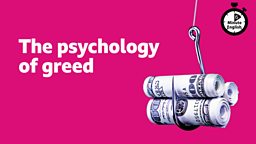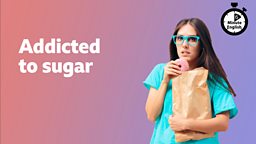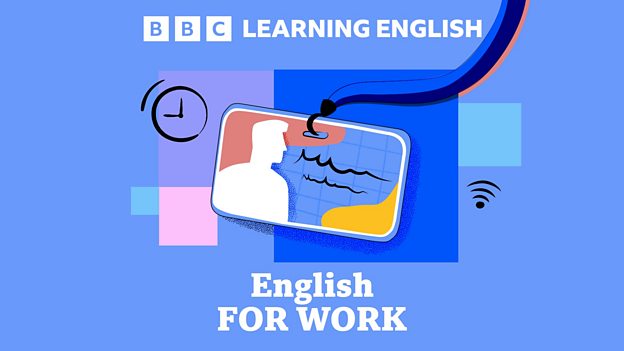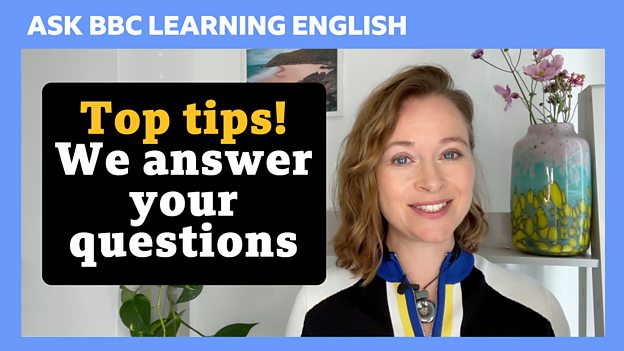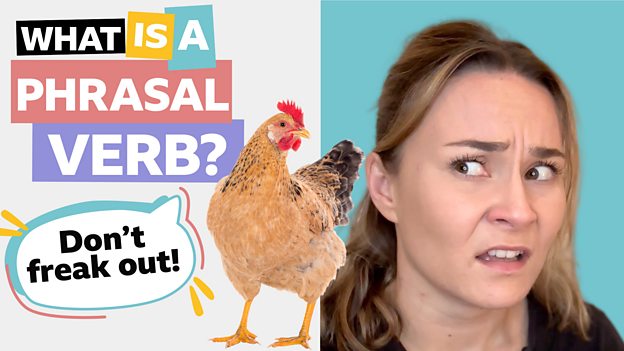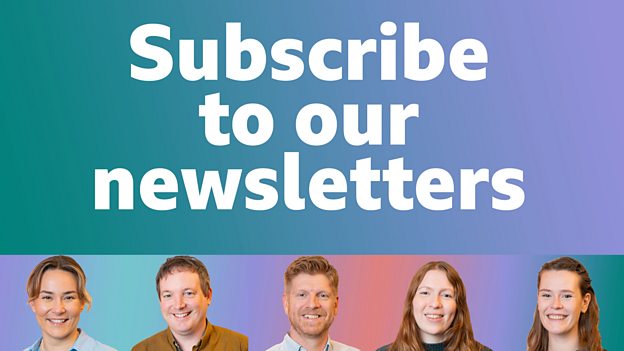6 Minute English
Intermediate level
AI to reduce animal testing
Episode 240718 / 18 Jul 2024

_____________________________________________________________________________________________________
Download a free 6 Minute English worksheet!
Download a free transcript!
Learn more about technology
______________________________________________________________________________________________________
Try more episodes of 6 Minute English:
- The school that puts the kids in charge
- What can we learn from toddlers?
- How learning to read changes lives
Introduction
Could AI reduce the need for animal testing? Phil and Georgie discuss this and teach you some useful vocabulary.
This week's question
There’s one commonly used medicine in particular which is harmful for animals but safe for humans, but what?
Is it:
a) antibiotics?
b) aspirin? or,
c) paracetamol?
Listen to the programme to hear the answer.
Vocabulary
human guinea pigs
the first people to have something new tested on them
vice versa
used to indicate that the opposite of what you have just said is also true
thread the needle
task which requires extreme skill and precision to do successfully, especially one which requires balancing conflicting interests
the whole picture
a complete description of something which includes all the relevant information and opinions about it
wade through something
spend a lot of time and effort doing something boring or difficult, especially reading a lot of information
on top of (something)
in addition to something, especially something unpleasant
TRANSCRIPT
Note: This is not a word-for-word transcript.
Phil
Hello. This is 6 Minute English from BBC Learning English. I’m Phil.
Georgie
And I’m Georgie.
Phil
Animal testing is when living animals are used in scientific research to find out how effective a new medicine is, or how safe a product is for humans.
Georgie
Scientists in favour of it argue that animal testing shows whether medicines are safe or dangerous for humans, and has saved many lives. But animal rights campaigners say it’s cruel, and also ineffective because animals and humans are so different.
Phil
Under British law, medicines must be tested on two different types of animals, usually starting with rats, mice or guinea pigs. And in everyday English, the term human guinea pig can be used to mean the first people to have something tested on them. But now, groups both for and against animal testing are thinking again, thanks to a recent development in the debate: AI.
Georgie
In this programme, we’ll be hearing how artificial intelligence could help reduce the need for scientific testing on animals.
Phil
But first I have a question for you, Georgie. There’s one commonly used medicine in particular, which is harmful for animals but safe for humans, but what? Is it:
a) antibiotics?
b) aspirin? or,
c) paracetamol?
Georgie
Hmm, I guess it’s aspirin.
Phil
OK, Georgie, I’ll reveal the answer at the end of the programme. Christine Ro is a science journalist who’s interested in the animal testing debate. Here, she explains to BBC World Service programme, 'Tech Life', some of the limitations of testing medicines on animals.
Christine Ro
Of course, you can't necessarily predict from a mouse or a dog what's going to happen in a human, and there have been a number of cases where substances that have proven to be toxic in animals have been proven to be safe in humans, and vice versa.
[…]
There are also, of course, animal welfare limitations to animal testing. Most people, I think, if they had the choice, would want their substances to be used on as few animals, or no animals, as possible, while still ensuring safety. Now that's been a really difficult needle to thread, but AI might help to make that more possible.
Georgie
Christine says that medicines which are safe for animals, might not be safe for humans. But the opposite is also true – what’s safe for humans might not be safe for animals. Christine uses the phrase vice versa to show that the opposite of what she says is also true.
Phil
Christine also uses the idiom to thread the needle to describe a task which requires a lot of skill and precision, especially one involving a conflict. Yes, medical animal testing may save human lives, but many people see it as cruel and distressing for the animal – it’s a difficult needle to thread.
Georgie
But now, the challenge of threading that needle has got a little easier because of artificial intelligence. Predicting how likely a new medicine is to harm humans, involves analysing the results of thousands of experiments. And one thing AI is really good at, is analysing mountains and mountains of data. Here’s Christine Ro again, speaking with BBC World Service’s, 'Tech Life'.
Christine Ro
So, AI isn't the whole picture of course, but it's an increasingly important part of the picture. And one reason for that, is that there is a huge amount of toxicology data to wade through when it comes to determining chemical safety, and on top of that, there's this staggering number of chemicals being invented all of the time.
Phil
AI helps scientists wade through huge amounts of data. If you wade through something, you spend a lot of time and effort doing something boring or difficult, especially reading a lot of information.
Georgie
AI can process huge amounts of data, and what’s more, that amount keeps growing as new chemicals are invented. Christine uses the phrase on top of that, meaning 'in addition to something', often this extra thing is negative. She means there’s already so much data to understand and additionally, there’s even more to be understood about these new chemicals.
Phil
Of course, the good news is that with AI, testing on animals could one day stop, although Christine warns that AI is not the whole picture, it’s not a complete description of something which includes all the relevant information. Nevertheless, the news is a step forward for both animal welfare and for modern medicine.
Georgie
Speaking of which, what was the answer to your question, Phil? What is a commonly used medicine which is safe for humans, but harmful to animals? I guessed it was aspirin.
Phil
Which was the correct answer! Right, let’s recap the vocabulary we’ve discussed, starting with human guinea pigs meaning the first people to have something new tested on them.
Georgie
The phrase vice versa is used to indicate that the opposite of what you have just said is also true.
Phil
To thread the needle describes a task which requires extreme skill and precision to do successfully.
Georgie
The whole picture means a complete description of something, which includes all the relevant information and opinions about it.
Phil
If you wade through something, you spend a lot of time and effort doing something boring or difficult, especially reading a lot of information.
Georgie
And finally, the phrase on top of something means 'in addition to something', and that extra thing is often negative. That’s all for this week. Goodbye for now!
Phil
Bye!
Latest 6 Minute English
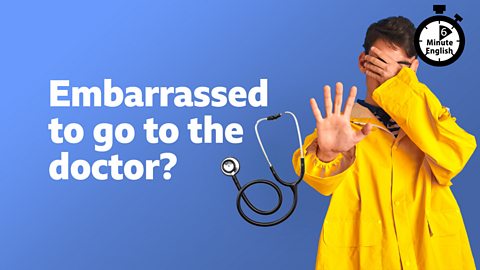
Embarrassed to go to the doctor?
Episode 241226 / 26 Dec 2024
Have you ever been embarrassed to go to the doctor?
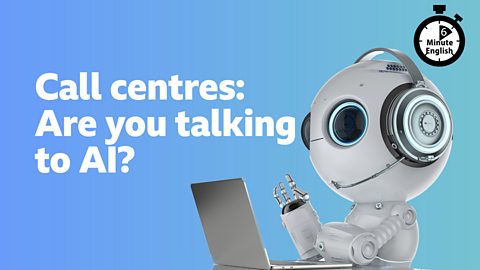
Call centres: Are you talking to AI?
Episode 241219 / 19 Dec 2024
Have you ever phoned up a company and had your call held in a queue? Could AI make this less painful?

Making 'mum friends'
Episode 241212 / 12 Dec 2024
Is making new ‘mum friends’ the positive experience it’s often described as?
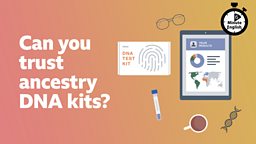
Can you trust ancestry DNA kits?
Episode 241205 / 05 Dec 2024
Are DNA ancestry tests a reliable way to trace your ancestry?
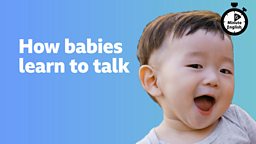
How babies learn to talk
Episode 241128 / 28 Nov 2024
What do babies need to learn to do to be able to talk?
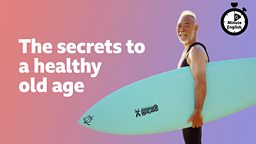

The bond between sisters
Episode 241114 / 14 Nov 2024
Are the stereotypes about older and younger sisters true?


Why you need a good night's sleep
Episode 241031 / 31 Oct 2024
Why is it so important to get a good night's sleep?

Divorce: Why does it happen?
Episode 241024 / 24 Oct 2024
How is divorce talked about in different countries?
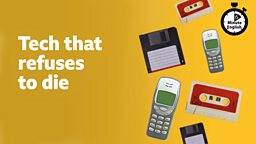
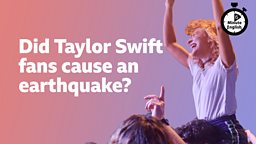
Did Taylor Swift fans cause an earthquake?
Episode 241010 / 10 Oct 2024
Did Taylor Swift move the Earth?
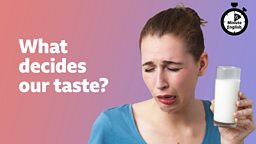
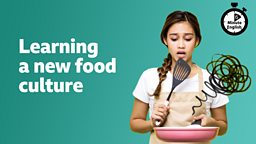
Learning a new food culture
Episode 240926 / 26 Sep 2024
Would you find it different to adapt to a new food culture?

Saving water in the driest place on Earth
Episode 240919 / 19 Sep 2024
How do farmers in the driest place on Earth manage to grow crops? With this solution!
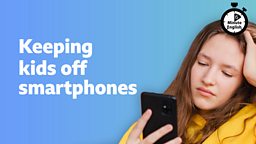
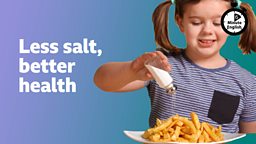

Chocolate: Meet a real Willy Wonka
Episode 240829 / 29 Aug 2024
Would you like to be a chocolate maker, like Roald Dahl's Willy Wonka?

Why we love dumplings
Episode 240822 / 22 Aug 2024
Warning! This episode might make you very hungry...
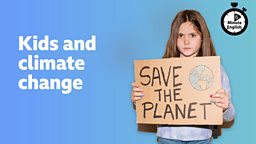
Kids and climate change
Episode 240815 / 15 Aug 2024
What are young people's thoughts on climate change?

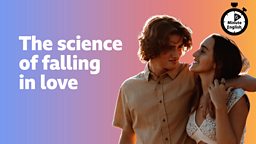
The science of falling in love
Episode 240801 / 01 Aug 2024
What's really happening in our brain when we fall in love?
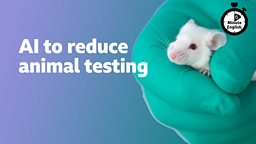
AI to reduce animal testing
Episode 240718 / 18 Jul 2024
Could AI reduce the need for animal testing?

Why read books, not screens?
Episode 240718 / 25 Jul 2024
Why is it better to read from a book than a screen?
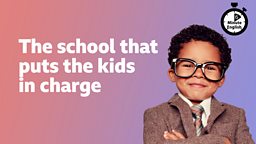
The school that puts the kids in charge
Episode 240711 / 11 Jul 2024
What happens when you put the kids in charge of the school?

What can we learn from toddlers?
Episode 240704 / 04 Jul 2024
Learn to speak to yourself in the way that toddlers do!
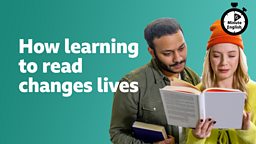
How learning to read changes lives
Episode 240627 / 27 Jun 2024
How can literacy change people's lives?

Building a better world with wood?
Episode 240620 / 20 Jun 2024
How can buildings made from wood help our mental health?
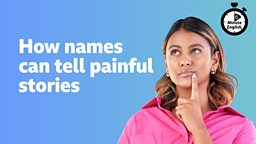
How names can tell painful stories
Episode 240613 / 13 Jun 2024
Could our name have painful baggage?

E-rickshaws driving away pollution
Episode 240606 / 06 Jun 2024
Could E-rickshaws give us cleaner air?

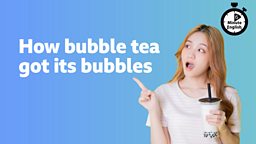

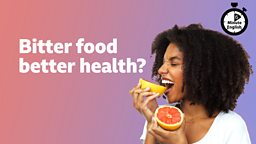
Bitter food, better health?
Episode 240509 / 09 May 2024
Could bitter foods be better for your health?
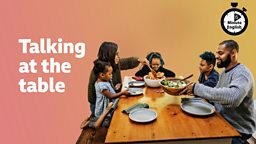


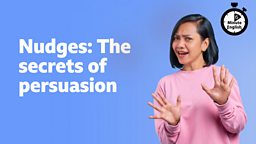



Disability in music and theatre
Episode 240321 / 21 Mar 2024
Learn about the people who are making it easier for disabled musicians and music fans to perform and see live music


Sewing to fight period poverty
Episode 240307 / 07 Mar 2024
Period poverty affects over 500 million people worldwide. How can a volunteer project help?
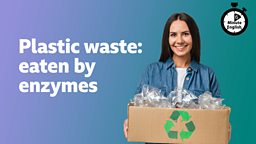
Plastic waste eaten by enzymes
Episode 240229 / 29 Feb 2024
Plastics can be difficult to recycle. Could a recently discovered enzyme help?
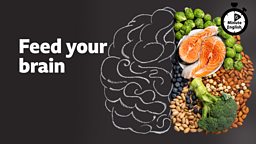
Feed your brain
Episode 240222 / 22 Feb 2024
Food is fuel for our brains. So, what should we be eating?
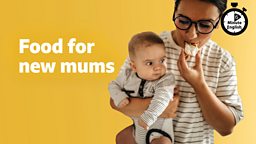
Food for new mums
Episode 240215 / 15 Feb 2024
Having a baby is exhausting! What do mothers need to eat after giving birth?
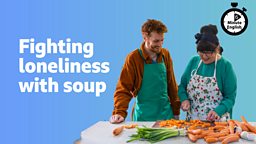
Fighting loneliness with soup
Episode 240208 / 08 Feb 2024
Hear how a project in the Netherlands is helping in the fight against loneliness

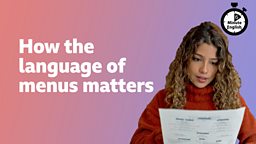
How the language of menus matters
Episode 240125 / 25 Jan 2024
Why is the language used on menus important?
